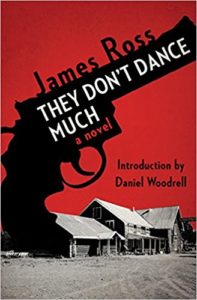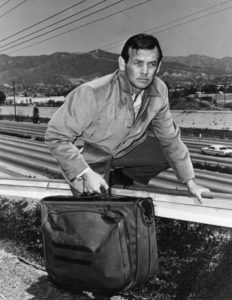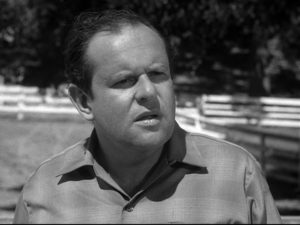Today we have yet another in our series of soul-crushing First Page Reviews.
Of course, I’m being a bit sarcastic. The intention is never to be soul-crushing, even when that seems to be the outcome. (We’ve all been there, on both sides of these little eviscerations.)
I’m not a big fan of first page reviews. They aren’t without some value, of course, because certainly they provide a glimpse of the writer’s ability to render readable prose, which is a square-one necessity in this business. (You’ll notice that this alone usually eats up over 90 percent of the feedback we provide here, and about 60 percent my own feedback today). And perhaps, to set up a scene… specifically, an opening scene. But that’s about it. They tell us little about the story arc itself. Nor should they. Stormy skies and perfectly coiffed hair and the color of sunsets, because we’ve all seen the color of sunsets and don’t need to be told – often the hallmarks of a first page – aren’t really the point, while they certainly can be stage lighting if handled properly.
We also often get some sense of initial foreshadowing, of course, but if the entire story is visible beyond a vague hint on page one, that, too, is a mistake. First pages aren’t there to tell us about the story itself. Nor should they. They are there to begin the process of setting up the story. Stormy skies and perfectly coiffed hair – often the hallmarks of a first page – aren’t really the point, while they certainly can be stage lighting.
And therein resides a paradox. Because if we don’t yet know the story arc, we can’t really access how well the setup for it has been handled… beyond, of course, the prose itself. So here we are, having come full circle to focus on the sentences.
That said, let’s see how today’s brave author (we are contractually obliged to include that phrase in these intros) does with her or his first page.
My not-quite-as-cynical commentary (really, I’m hoping I can help) follows.
Twilight coloured everything with purple shadows. Squeals echoed down the slope while the last of the kids raced the darkness home, the boys rounded up and kept safe by girls like us. Surrounded by poplar trees, at sea in a stretch of grass and daisies, the tall ship appeared around the curve of the hill. A well-worn and familiar playground in Old Town, the tilted deck was strung with rope nets and a faded black flag flew above.
Our shoes stirred up the damp smell of woodchips as the two of us reached the hull and climbed up onto the deck. The boards sounded hollow, empty beneath our feet. Leaning back against the worn timber, I tore open the paper, and hot vinegar clouded up into my face, sharply comfortingly. With my eyes downcast, I offered the chips to Martha.
We ate in silence as the night pressed down around us. My wet clothes had chilled with the evening air and kept me from forgetting what had happened earlier. Though I tried to fill up somehow, swallowing past the rawness in my throat, my jaw was hard with tension. I felt overly conscious of every gesture and the quiet was building.
When the food was gone, I scrunched the paper, holding it close to my nose to inhale the familiar scent. It smelled of late nights; the familiar bustle around the fryers and the fluid motion of Martha working beside me. I clenched the paper tighter, wringing it between my hands. Sweat budded over my top lip and I coached myself to speak, to break the spell somehow.
Alongside, Martha crossed her arms and tilted back against the wooden balustrade, looking up at the sky. Waiting.
It was lonely, sitting side by side with my oldest friend. I toyed with the discarded paper, flicking it back and forth with my fingertips. I had a sense of something counting down.
“Can you stop that?” said Martha. Still, she didn’t look at me.
My cheeks flushed hot but I imagined I could hear ice cracking over dark water.
“I didn’t mean for it to go that far!” I choked suddenly, swiping at my eyes.
Martha finally looked at me, lips pressed tight together. “So, what the hell happened, Penn?
Here’s my first impression. And really, I say this with love and empathy: you’re trying too hard. Much too hard. My fear is a crusty old editor, whose taste for purple prose (ironic, since this is the color you evoke in your opening line) has soured like the tongue of a senior chef auditioning newbies for a cooking show.
Okay, now I’m trying too hard.
Shadows aren’t purple. Dusk skies are purple. Shadows are a lack of color. It’s never wise to try to revinvent nature.
So the girls have rounded up the boys and are keeping them safe on the way home, all of them squealing. Really… I don’t think this works. And if they’ve all headed home, nobody is squealing anymore.
Your sentence introducing the “tall ship” works better if you flip it around, like this: The tall ship appeared around the curve of the hill, surrounded by poplar trees, at sea in a stretch of grass and daisies. Another note: hills don’t curve, they slope. And the ship doesn’t “appear” unless ot or you are moving (a point of view thing); rather, om this case it is fixed in place, because it isn’t really a ship at all.
You’re trying too hard. The biggest rookie mistake, and the most common, is to try to sound like a professional author, but end up sounding like someone trying to sound a certain way. Professional authors live in a world where they understand that less is more, where adjectives and adverbs and over-wrought metaphors are the very things that mark the writing of a newbie.
This essence – sounding like a professional – is the hardest thing to teach and to learn (among a core set of more precise principles, which are absolutely teachable and learnable). The best way to learn is to have someone blue pencil your own narrative to understand why it is perceived as otherwise.
Your next paragraph is a confusion of up-and-down geometry: shoes stirred up… climbed up… empty beneath… leaning back… tore open the paper… clouded up… eyes downcast. This is literary motion sickness, I’m afraid.
Martha looked up at the sky… waiting for what, exactly? Whatever she was waiting for, it wasn’t going to descend from the heavens.
Nothing (beyond description) happens until your sixth paragraph. This is the whole point of the scene (and the first page): they feel like something is coming. That all of this is “counting down” to something, and this is the something that will crack open the story. This moment is the point of the scene… I suggest you get to it a bit quicker, cutting out all the existential pondering of sights and sounds, which really means nothing in context to what’s about to be revealed between the two girls… who must have taken a pass at gathering boys and protecting them on their way home.
Because that is what the reader will care about. The reader won’t care about what kind of tree surrounds them, or what smells are wafting about, or what vinegar smells like… because none of that is what the scene is about.
Begin with this awareness, and build an impactful lead into the moment when the girls get real about whatever happened that still haunts them, in context to what they know or don’t know, and can discuss or shouldn’t discuss.
This upgrade is an example of what I like to call mission-driven scene writing, versus overly sensated English Comp 101 scene writing. At the professional level, even on a first page, crusty old agents and pub house readers and even browsing readers on Amazon’s preview pages instinctively know the difference.
One other comment: your title… it makes me go, “huh?” You can do better.
Hope this helps. Killzoners (I won’t say “what think ye?” again, I got killed for that one), please weigh in and help this writer get over this purple hump.










